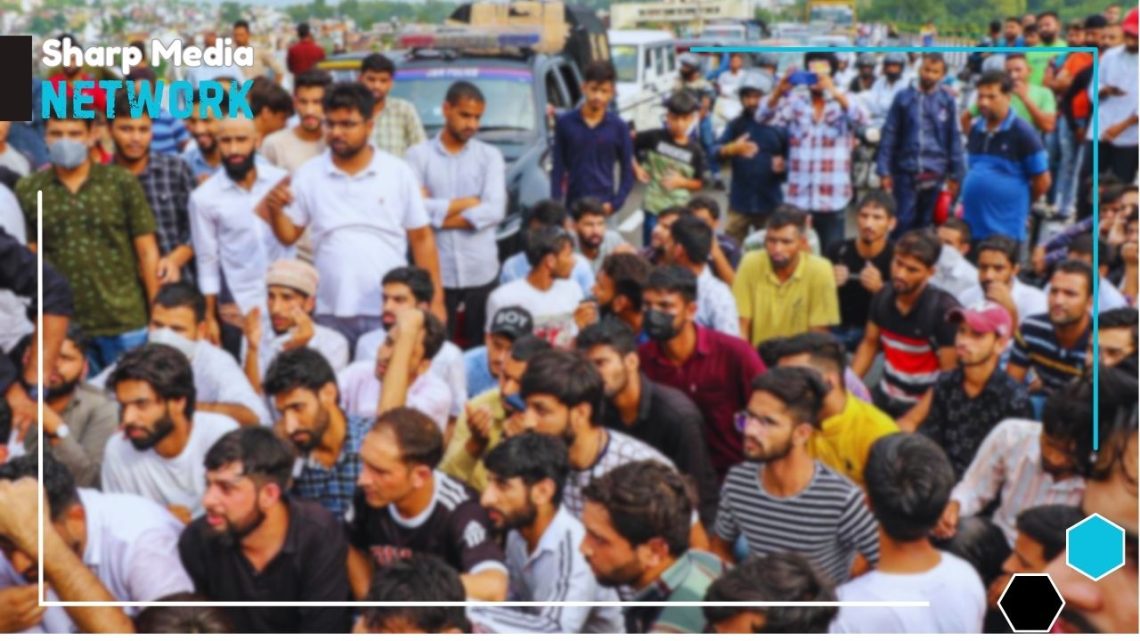
Jammu University Students Protest against Non-Local Recruitment in Tribal Quotas
November 19, 2024In Indian Illegally Occupied Jammu and Kashmir, students from the Gujjar-Bakerwal Students Alliance (GBSA) recently staged a protest at Jammu University, condemning the university’s decision to include non-locals in recruitment processes intended for indigenous Scheduled Tribes (ST) and Scheduled Castes (SC).
The protest was a clear response to what students see as a direct violation of the region’s reservation policies. By allowing candidates from outside Jammu and Kashmir to apply for positions reserved for native communities, the university has breached established regulations meant to protect the rights of marginalized groups.
Irfan Chowdhary, President of GBSA, was vocal in his criticism, calling the move unconstitutional. “This is discrimination against the native tribal communities,” he said. “It’s a direct attack on the reservation policy that exists to safeguard their interests and ensure their rights.”
General Secretary Sakib Choudhary also voiced strong opposition, arguing that the university’s actions undermine the very purpose of the reservation system. “These practices not only harm local livelihoods but also defeat the entire purpose of the reservation policies, which were designed to uplift socio-economically disadvantaged communities,” he stated.
GBSA spokesperson Mohammad Ashraf emphasized that Jammu University, as a state-funded institution, has a legal obligation to adhere to Jammu and Kashmir’s reservation rules. He and other student leaders, including Nazir Poswal and Haris Ali, condemned the inclusion of non-locals in the recruitment process as both discriminatory and unjust.
This protest was not a mere display of frustration—it was a firm demand for justice. The students submitted a memorandum to Tribal Affairs Minister Javed Rana, along with copies to the Chief Minister and Lieutenant Governor. Their message was clear: immediate action must be taken to ensure that recruitment processes respect the rights of indigenous communities and adhere to the region’s legal framework.
The protest saw a significant turnout, reflecting the deep frustration of local students and tribal communities. They are fed up with policies that seem designed to undermine their rights and exclude them from opportunities meant to support their socio-economic upliftment. The students’ call to action is simple: the university administration must act immediately to correct this injustice and uphold the reservation policies that protect the rights of Jammu and Kashmir’s tribal communities.
The inclusion of non-locals in recruitment processes is not just a policy misstep—it’s a betrayal of the promises made to indigenous communities. If these discriminatory practices continue unchecked, they will only further entrench inequality and injustice. The fight for the rightful representation of IIOJK’s native tribes must not be silenced.

